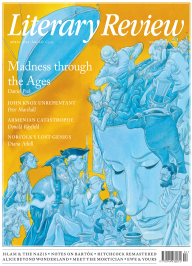Steve Fuller
Experimenting in Tongues
Scientific Babel: The Language of Science from the Fall of Latin to the Rise of English
By Michael D Gordin
Profile Books 415pp £25
English is the global scientific language – and has been for some time. That much is obvious. What is not so obvious is why. Although Scientific Babel is presented as a history of the very idea of a global scientific language, Michael Gordin, a Princeton-based historian of 19th- and 20th-century physical sciences, is really interested in fathoming the ascendancy of English. Nowadays, Spanish is actually the European language with the most native speakers, but English has the most second-language speakers. And that’s what counts when it comes to being the global scientific language. Indeed, Spanish was never a serious contender in the global scientific sweepstakes.
Gordin has not been alone in trying to explain the rise of scientific English. Scott Montgomery, a scientifically trained professional translator, has published a couple of books devoted to this theme that complement Gordin’s: Science in Translation and Does Science Need a Global Language? Whereas Montgomery treats East and West

Sign Up to our newsletter
Receive free articles, highlights from the archive, news, details of prizes, and much more.@Lit_Review
Follow Literary Review on Twitter
Twitter Feed
Russia’s recent efforts to destabilise the Baltic states have increased enthusiasm for the EU in these places. With Euroscepticism growing in countries like France and Germany, @owenmatth wonders whether Europe’s salvation will come from its periphery.
Owen Matthews - Sea of Troubles
Owen Matthews: Sea of Troubles - Baltic: The Future of Europe by Oliver Moody
literaryreview.co.uk
Many laptop workers will find Vincenzo Latronico’s PERFECTION sends shivers of uncomfortable recognition down their spine. I wrote about why for @Lit_Review
https://literaryreview.co.uk/hashtag-living
An insightful review by @DanielB89913888 of In Covid’s Wake (Macedo & Lee, @PrincetonUPress).
Paraphrasing: left-leaning authors critique the Covid response using right-wing arguments. A fascinating read.
via @Lit_Review